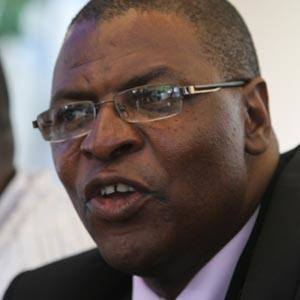
ZANU PF is delaying the constitution-making process so that elections are held after the UN World Tourism General Assembly in August when there would be little international glare on the country, sources in the former ruling party said last week.
BY CAIPHAS CHIMHETE
If pushed to hold polls earlier than that, the sources said, the party would make sure elections are conducted under the old charter which gives it advantage against its political rivals.
They said Zanu PF was cognisant that it would not win free and fair elections without intimidation or violence, acts which it cannot do before the tourism assembly as this would further dent the country’s tainted human rights records.
The party, which is battling to have sanctions on President Robert Mugabe and his cronies lifted, would not want another disputed election, especially before the UN meeting, at a time the country is trying to woo back tourists.
“To start with, Zanu PF has never wanted elections after the defeat of 2008,” said one source. “All along it has been grandstanding. It will only agree to holding elections when it can no longer stop the process and this is likely to be after the UN meeting in August.”
The sources said the MDC formations were aware of Zanu PF’s machinations and are determined to push for reforms so that polls are held before the meeting.
MDC leader, Welshman Ncube said Zanu PF has been calling for elections for the past two and a half years but doing everything possible to make sure they do not happen.
- Chamisa under fire over US$120K donation
- Mavhunga puts DeMbare into Chibuku quarterfinals
- Pension funds bet on Cabora Bassa oilfields
- Councils defy govt fire tender directive
Keep Reading
“I cannot say it’s the UN meeting but it has been their strategy since 2010. They talk left and act right,” said Ncube. “They have done everything to delay the constitution-making process by making new demands while shifting the blame on other parties.”
At the party’s national conference in Mutare in 2010, Zanu PF resolved to hold elections “without fail” at the expiry of the term of the Global Political Agreement (GPA) and the inclusive government. MDC-T is demanding that elections be held “urgently” this year after the referendum and when all electoral reforms agreed to in the GPA, which are part of the Sadc roadmap to free and fair polls, have been implemented.
“We also demand the complete removal and replacement of ZEC [Zimbabwe Electoral Commission] secretariat, security sector reform, eradication of all forms of State-sponsored violence and access to State media,” said party spokesperson Douglas Mwonzora. “For the MDC-T elections have to happen this year.”
He accused Zanu PF of delaying the crafting of the new constitution by making “outrageous, unreasonable and unsustainable demands”.
The MDC formations and Zanu PF have failed to agree on issues to do with the national prosecuting authority, devolution, land commission, running mate clause as well as the truth and reconciliation commission.
A special cabinet committee is set to meet this Wednesday to iron-out the sticky points.
Ncube said Zanu PF could not continue delaying elections this time around unless there was a new constitution, flexible on dates or an amendment for the current charter.
He said they must be held by September 27 this year. Ncube said if Parliament is not dissolved sooner, it will automatically be disbanded on June 29, which is five years from the date Mugabe was sworn-in.
“The five years expires on June 29 2013 and on that date Parliament will automatically be dissolved,” said Ncube. Once it is dissolved, the constitution says elections must be held 90 days from the dissolution of Parliament which basically means elections must be held before September 27 this year.”
Experts said with the current slow pace of electoral reforms, it was virtually impossible to hold elections in March or June as presently touted.
They said after the conclusion of the new constitution, a minimum of three months was needed to synchronise the charter with such laws as Posa, Aippa, Electoral Act and the Bill of Rights.
“Ideally, you would need about 12 to 18 months for such an exercise,” said one expert who refused to be named. “With the way things are shaping, it is almost impossible to have a referendum, synchronise the new constitution with other laws and then hold elections in June this year.”









